By Ahmet Bushati
Part forty-five
Memorie.al/ After the flag was altered in 1944 with the addition of the communist star, Shkodra transformed into a center of resistance against the regime, paying a high price for its tradition of freedom. By April 1945, high school students, already feeling betrayed by the promises of the war, gathered to oppose the new terror that imprisoned and killed innocent people. Communism turned Kosovo into a province of Yugoslavia, while Shkodra was punished for its “historical crime”- its defiance against invaders. The “Postriba Movement” became a tool to suppress all dissent, plunging the city into an unprecedented spiral of suffering: imprisonments, executions, and the destruction of families. The high school students, alongside citizens, became symbols of resistance, while some “young communists” turned into tools of the State Security, leading to expulsions, imprisonments, and internments.
Four times, Shkodra rose in armed rebellion, but history forgot these battles. This book is written to remember the countless prisoners, the tortured, the killed, and the parents who suffered in silence. It is a warning against dictatorship and a plea for future generations not to forget the sacrifices made for freedom.
Continued from the previous issue
In the Footsteps of a Diary
I think that we young prisoners benefited from both the culture of educated prisoners and the experience of uneducated ones. We learned from everyone. It could be said that the suffering on the one hand and the contact with the most diverse people in prison would cause much of the sentimentality and naivety of our age to give way, without us noticing, to a seriousness and premature maturity, a change that would not be the same for all of us young people and would not necessarily remain so even in conditions of freedom.
We were young and nothing could pass by there without catching our attention, without making an impression on us. In that prison we would hear people of culture talk about Florence and Rome, about Vienna and Graz, or even about Geneva and Paris, places where those prisoners had once studied, often stimulating and satisfying our curiosity, and at the same time arousing in us the desire that one day we too would have the opportunity to attend schools in those places.
In that prison cell I heard for the first time talk about Bismarck, Richelieu and their social reforms, about Gandhi’s peaceful resistance in India, against the English colonizers, about the old and new wonders of the world, about Buddha and his revolt, about the Gospel and the Quran, etc., etc., without losing any of the interesting stories of, for example, a new Genius from Shllaku, when he told me about the life of the komitas, that he and his brother had gone through in the mountains, about the great suffering they had endured, as well as about the armed clashes they had had with the People’s Defense Forces, to be pursued by them from mountain to mountain and forest to forest.
Likewise, while a cultured man in that room would confide in me about a passionate love affair he had with a girl in his youth, with whose initials he had filled the tree trunks of his garden, Ali Brahja on the other hand, a former simple village teacher somewhere in his Tropoja, would tell me about the many adventures that he and his friends had gone through during extremely harsh winters in the mountains and hills, both in the Tropoja area, when they were pursued by Albanian partisans, and in the mountains and hills of Kosovo, when they were later pursued by Yugoslav partisans, adventures about which Alia would tell: “To escape the pursuit, we would move around constantly, especially at night, through forests with frozen snow and under the branches of fir trees that were covered not with snow, but with real ice, the needles whose prides would touch our hearts and whose danger would come into our eyes”.
In room no. 9, one corner of which was occupied by Ramadan Aga, there were, among others, the lawyer Dioniz Miçaço, professor Mehmet Daiu, the former permanent employee at the Italian embassy, Lec Harapi, Mark Temali who had graduated in law in Belgrade, Mustaf Jakupi, Et’hem Rema, who had served as mayor and, in the last years of the Kingdom, sub-prefect in Kavaja, and like them, many other citizens, as well as the wisest of the room, such as Nush Gurakuqi, Visho Rroji and Bektesh Kazazi, who remained very silent and never moved from their seats.
There were also former teachers Hysen Lohja, Qazim Dervishi and Asim Golemi, there was Nik Gjeloshi from Kastrati, as well as priests Father Donat Kurti, Father Gardini – Italian – Father Dioniz Maka and some others. There were also many other citizens, whom I am not mentioning, wanting to somehow repay my obligation to some of the ordinary people in that prison cell, who probably made up the majority and who certainly, in relation to us citizens, suffered more.
Among others, I can mention Caf Smajli from Loha e Malcia, Rranxa, who years ago had been a high school student in Shkodër, who during the war had gone to the mountains with a weapon in his hand, and who had participated in the battle of Reç with a machine gun, and who was also reading in French in that room. When we were camping in a place near Peqin, one day Cafi would have the misfortune to get into a fight with a common rascal from the south, and it took my intervention – since I happened to be nearby – to finally convince Cafi to walk away from a quarrel that was not worth prolonging, at which point Cafi, somewhat dissatisfied with himself, would say to me: “Okay, Ahmet, okay, but I’m afraid we’re getting used to each other”!
When Cafi was still in prison, a brother of his named Zeke, in an attempt to escape to Yugoslavia, was killed in Velečik, along with a certain Luce Ulet. Cafi, after being released from prison, would quickly escape to Yugoslavia, along with his two brothers, Muho and Ramadan. One day, Ramadani, together with Kolë Gjergji and Mirash Gjoka, were going to cross the border to Shipni, with the intention of killing the Party secretary, Muho Selimi, in Lohe. The leader of the group was Kolë Gjergji, who was cousins with Ramadani, although of different religions. On the mountain of Lohe, they were surrounded by the Sigurimi forces. After three hours of fighting, Mirash, wounded in the body, and Ramadani, healthy, managed to break the siege, believing that they had left Kola lying on the ground and left him to be killed.
Only when Kola called out Ramadani’s name would they realize that he had not died. While Mirashi, although wounded, would continue his journey to Yugoslavia, Ramadani, on his part, as after Kola’s call, would be forced to fight back and kill Kola, as after the word they had made before, that “if one of them was wounded, the other would kill him, so that he would not fall alive into the hands of the communists”! Ramadani, although alone, still by fighting, would somehow manage to survive the siege and not leave Loha, until one day he killed Muho Selimi.
In Yugoslavia he would serve about seven years in prison, because there too he would kill a U.D.B. officer, who on an anniversary of the 28th of November, had insulted Ramadan’s flag. There in room no. 9, Zef Mirashi and Mark Malaj would have been right up there. Although both were born and raised in their own land of Dukagjin, and although both had worn military uniforms for several years, their characters would have been different.
While for the older Zef Mirashi, the duty and discipline of the former soldier had been merged into one with his natural inclinations, which was shown by his seriousness and rigorous correctness, which would start from his personal holding of the place he occupied with a pillow, his respect for every rule, and would also show that character and his prolonged silences and the sparing words when he talked, and at the same time, the strong and somewhat angry tones that he would use on occasions, affirming with all the above, a character of his as a man who was both measured, strong and somewhat harsh at times, in contrast to his fellow countryman, Mark, who, although like Zef regular and correct in everything, but who despite his military uniform that he had on, the academic who had been of the rank of major that he had, he would continue to preserve intact another individuality of his, that of a moderate and liberal man, which, among other things, would be revealed to him by the Italian novels he read there.
Two other prisoners with the same name, Qazim Hardolli from Zusi in Shkodra and the other Qazim Kryeziu from Kryeziu in Fushë-Arrezi, were very close to their comrades. They were in prison together and even when they were in camps, and after leaving prison, they and their families would remain strongly connected to each other. Two other prisoners, friends with each other, Zefi, nephew of the Shoshi flag-bearer, and Bardhok Prenga from Mirditet, friends with the two Qazims mentioned above, would form a very charming “quartet” of good friends. The two Qazims and Zefi were exceptionally gentle and wise, while Bardhoku, in whose eyes and lips a kind cunning often played, although as good as his three friends, would not be infinitely gentle and patient as they.
With the exception of Qazim Hardolli, who would always accompany the teasing between his three friends with the smile of a neutral person, the other three would use as friends any nickname or undesirable event that had been heard about the village or region to which they in turn belonged, and of course, in such cases, adding and deforming it as much as possible, and sometimes even pointing out the individual shortcomings of each other.
The most attacked would be Zefi, although he, so calm and composed, would take the fight to the end without ever losing his red face and smile. Since there were usually two of them against him, I would often intervene, addressing Zefi: “Mr. Zefi, are you or aren’t you Dukagjini’s son, but how can you be so gentle with these gentlemen?” and Zefi, with his characteristic calmness and always laughing, would answer me: “Mr. Met, they must be better men than they are, so that I don’t have to be angry with anyone. They are different from who they are!”
Close to them and very related to Qazim Kryeziu, would also be a certain Nikollë Palucet from Fushë-Arrëz, where he had been a small merchant. He would be one of the gentlest and kindest people not only in the cell, but also in the prison. Like Nikollë Paluca of Fushë Arrëz, there could also have been two men from Rragami, who, as far as I remember, were called Shaban Abdullahi and Zyber Hyseni, and who stood out for their very good and gentle behavior, as well as for their very orderly and exemplary cleanliness.
Both of them were as healthy as a rock and with bodies perhaps slightly less than average. In their round and somewhat brown faces, I would also notice a special charm in their features that they had: very black eyes, eyebrows and hair, small mouths and noses, clean and relatively high foreheads, which with their always white hats, could create a valuable painting.
The imprisoned former students of the American model and martyr school, for twenty years shot and eighty others imprisoned for years by the dictatorship regime, would sometimes speak to us with great respect for their former principal Harry Fultz, which would constantly make me wonder about him and his personality. I’m at least telling you what Ruzhdi Baja once told me about him: “He himself, dressed like a soldier with alpine boots, trousers and a green blouse with flared sleeves, would always run the route from Laprake to Kamëz, whenever he would drive us students there, and when after the day’s practice was over, we would often leave him there, continuing to plow the land with the tractor for several more hours,” only to return the way he had gone, running.
Another time he would have told me: “The day after his first introduction to us, he divided us into groups, giving us different tasks, related to organizing and cleaning the territory around the school. He told me and three others from Shkodra to wait for the task, there on the edge of a black hole of a toilet. Thinking that he would assign us to clean it, as gentlemen’s boys that we were, and who until then had never touched a manual job, we were completely scandalized for a moment, but nevertheless, shy as ever, we did not make a sound.
But when he had given us an empty bucket for ourselves and put it in the dirty pit, and then, he would start to fill the buckets without any effort and bring them back to us in turn, and we, on our part, although with our heads down, started and completed the work as he asked. That was how Fultz was in relation to our work and education” – Ruzhdiu would continue, – “while with the high Albanian governors, he would maintain with prestige the position of the state he represented. Among the ministers, only Mirash Ivanaj, as a sign of special respect, would accompany him to the outside of the schoolyard, while with the others, he would part at the top of the school steps”.
As if with regret, Ruzhdiu would tell me about the last time he had seen Fultz from a distance: “We had heard that Fultz, perhaps within the framework of the UNRRA, had come to Albania and the day of his visit to Shkodra had been announced, on which occasion it was announced that he would stop first in Lezha. In order not to be noticed, I decided to go out before Fultz in Lezha, where no one knew me. Even before he arrived there, I had approached the tribune that had been erected for that occasion, taking a seat in front of it about 4-5 m. away. When Fultz, accompanied by foreign authorities and missions, dueled on the tribune, how he saw and recognized me immediately, and in order not to compromise me, he raised his eyes to the sky and spoke allegorically: “It is going to rain” (it is going to rain), and as if without paying attention, he lowered his head looking at me, while I slightly pursed my lips, as if to tell him that I had understood”.
This man, so patriotic for his country and equally humane and philanthropic for others, would be that sinner for his former students and that monster for Albania, according to the Albanian communists, who from behind their iron curtain, would have supposedly managed to recruit his former students as spies in the service of the American CIA, who would then, seemingly without exception, be imprisoned and partially even shot by communist courts farce.
In that room we also had a certain Sinan Mehmet from Lumet, whose imprisonment must have been the strangest thing for anyone who had known him at all. To say that Sinan was uneducated, a simple peasant, or even lost, would be an understatement. Sinan’s appearance, as well as his general behavior, led one to believe that he was a being whose development had been stunted from the very beginning of his growth. If someone who had known him before had been told that the People’s Power would one day imprison Sinan Mehmet, that man, no matter how much he had known the “miracles” of that wild and capricious power, would have taken such news for a random number of humors. However, Sinan Mehmet from Lumet, probably in his fifties, would have spent several years in prisons and camps works, under the serious label of “Enemy of the People”!
If his face had been covered with grime, more than anyone else’s, it might have come somewhat closer to the muzzle of a monkey. His jaws and beard, together with his large mouth, protruded like an arch in front, while his eyes, under the shadow of a pair of thick eyebrows with scattered wrinkles, stood as if hidden in the depths of their two dark sockets. His low and slightly sloping forehead, completely covered with wrinkles, he walked with very weak knees and with his chest bent forward, having also a thick and crazy voice, and last but not least, together with his empty gaze, always wandering over the people and things that surrounded him, added to his short body and the characteristic clothing of a riverman with a scythe, a pair of turbans with a white cap on his head, would painfully complete his physical portrait.
I had the impression that a smile might never have crossed his face, although above all, he was a good man. Although the look and facial expressions of the idiot Sinan never changed, to sing, he sang whenever he was told to and the prisoners around him, even though he was laughing, would listen to his song to the end and with pleasure, regardless of the tone he had and the song with very little alternation of notes. He sang especially a song called; “of Asime” – Hasime according to Sinan – the touching motif of which was that Asime, dressed as a man, had one day received the blood of her murdered brothers.
I don’t know if Sinan’s name was ever called out from the prison or camp bell, to meet his family, but I remember very well that he was never abandoned by the other prisoners, especially those from the river. Among other things, they would talk about Sinan in the room, as if he had once, when he was in the cell behind Muharrem Bajraktari, shot a car with a rifle, which he was looking at for the first time in his life, which was probably not true. In that room I would often see Zef Bardhoku and Haki Dibra sitting together.
Zef had been raised an orphan, as the only one who had survived, when a fire had broken out in his house, which had burned down his parents along with the house. Many things must have united those two boys, two peers, without lacking even a friendship as partisans that they had been. Both had grown up poor, – and Zefi even poorer than Hakia – in different neighborhoods of the city, but close to each other, Zefi in that of “Arrës e Madhe”, and Hakia in that of “Perash”, known by their peers, as among the brave men of their respective neighborhoods and distinguished as both, for very friendly relations with all of them and more or less their age. As children, and later as teenagers, there had been many occasions when they had taken the “wisest” and “weakest” of their neighborhoods to their defense.
During the occupation of the country, both of them had gone to the mountains and had been among the youngest partisans of the “Perlat Rexhepi” battalion, and both of them, in different ways, would also oppose the communist regime, although they had fought with weapons in hand to defeat it. So, every time I saw them together there in room no. 9, I would think of a complete coincidence of their lives and fates, which would not continue for such a long time, because Hakia, after a few years, would complete his sentence and get out of prison, while Zefi, after having suffered many more years inside, would be re-sentenced in time, which did not take long to complete the years remaining from his first sentence.
And it happened like this, because one day, after finishing work, Zefi lay down to rest in a camp where he was. A policeman who had passed by him, seeing that he was sleeping, had kicked him and Zefi, in a fit of rage, had hit the policeman on the head with a shovel. The decision of an improvised court in the presence of all the prisoners of the camp, had sentenced Zefi to another twenty-five years in prison, while he himself, in his last words, had declared: “I am asking for the death penalty myself, in order to end my suffering once and for all”! The jury would uphold its first decision and Zefi would serve the entire sentence, and eventually die just a few years after being released from prison. Memorie.al
Continued in the next issue




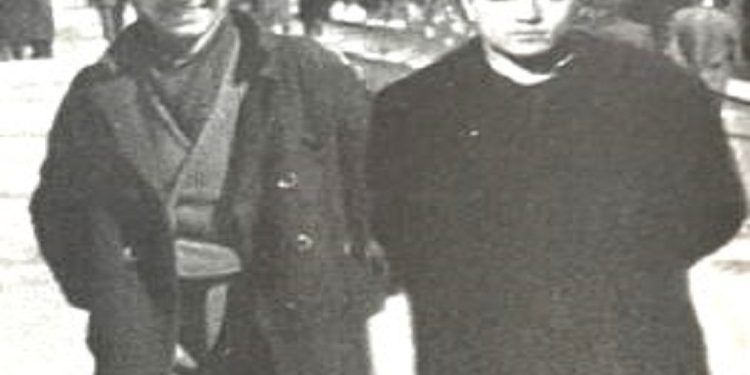
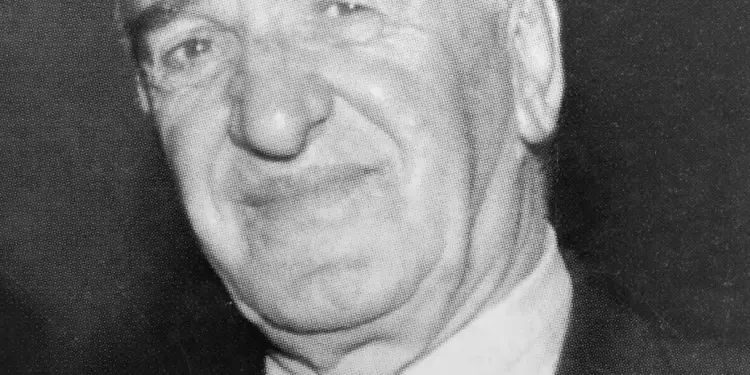
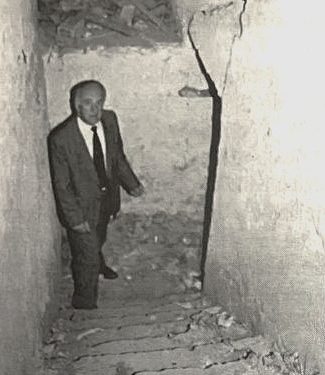
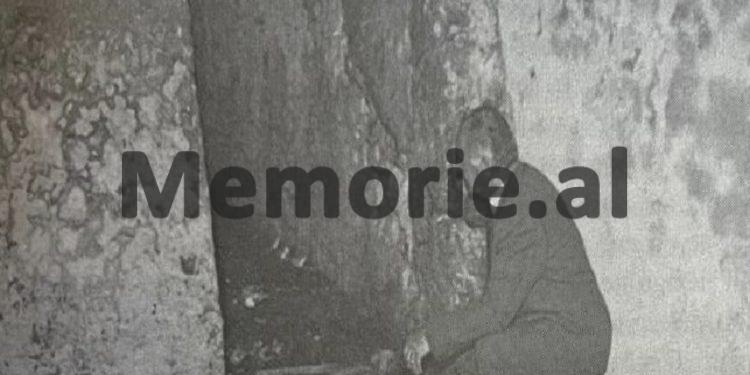
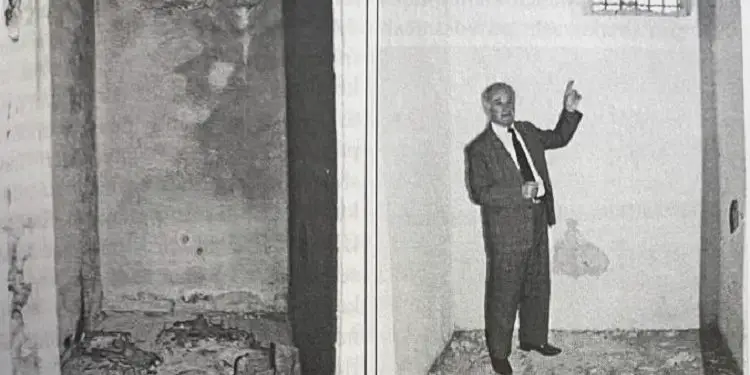
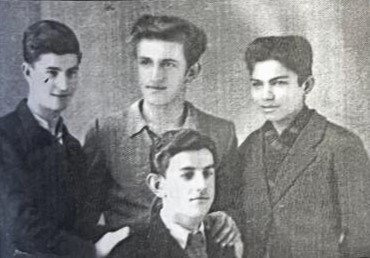
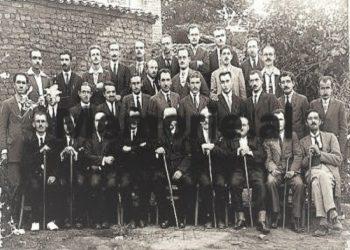

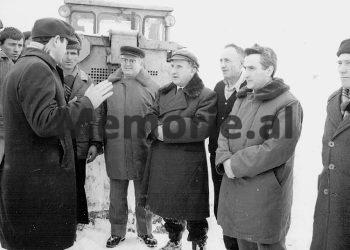
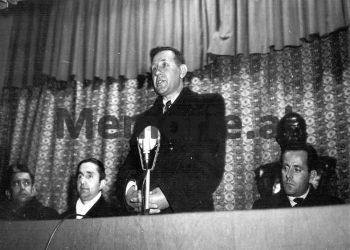
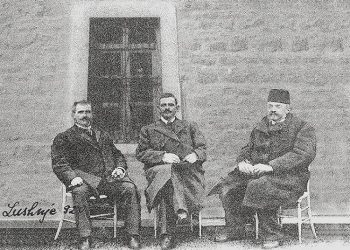
![“Light imprisonment may be served in a workhouse or by performing labor for public benefit; and if the convict does not display [bad behavior/resistance]…” / What did the Penal Code of 1928 provide?](https://memorie.al/wp-content/uploads/2025/03/admin-ajax-1-350x250.jpg)
